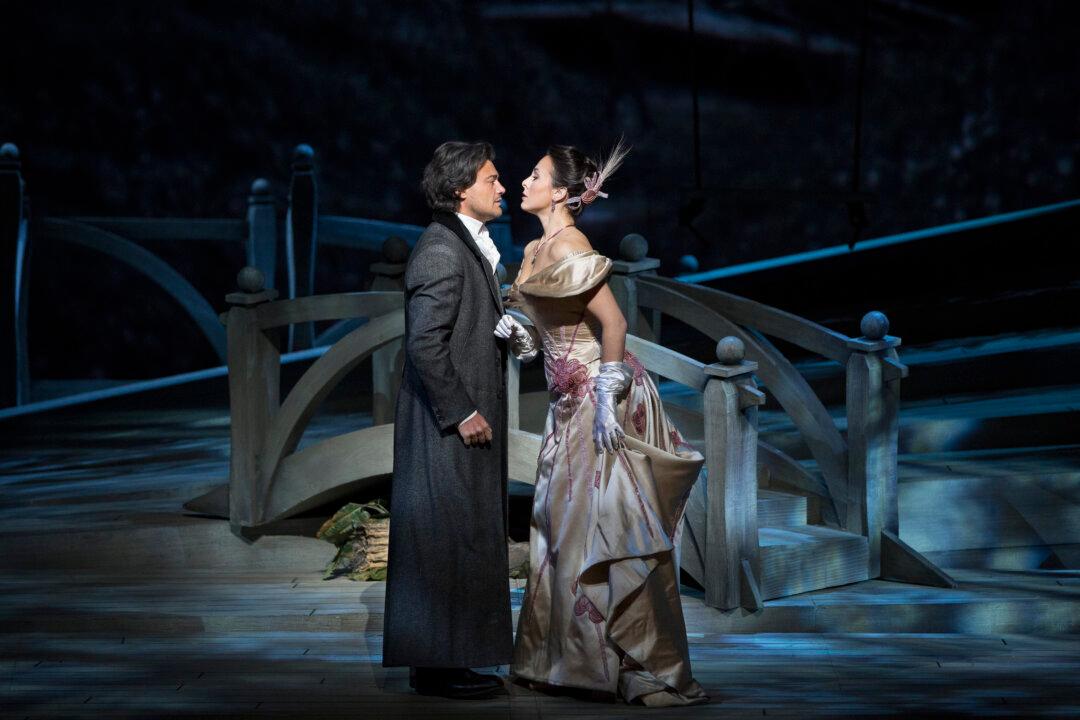NEW YORK—The success of any production of Jules Massenet’s “Werther,” the opera based on Goethe’s novel “The Sorrows of Young Werther” depends to a great extent on the tenor playing the manic-depressive title character. The Metropolitan Opera has brought back the production directed by Richard Eyre, starring Vittorio Grigolo, and the tenor has the looks, acting chops and, most important, vocal ability required for the role.
Eyre makes some changes to the opera that do not detract from the impact of the work. First, he changes the time period from the late 18th to the late 19th century, basically moving it into the period when Massenet wrote the opera.
Simeoni gives a tour de force performance of the Letter Scene.






